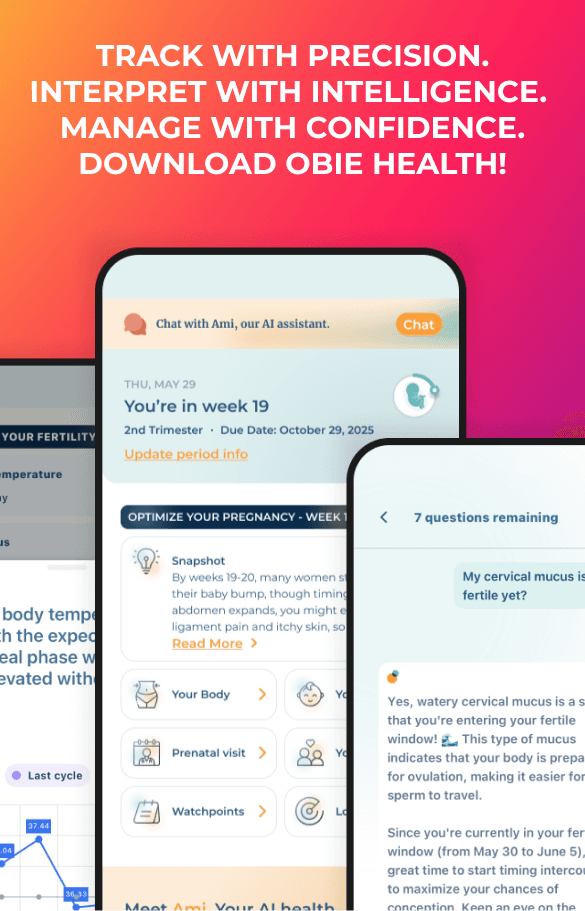Mental Health Disorders During Pregnancy
Mental Health
Obie Editorial Team

What are the early warning signs of possible mental health issues?
Not sure if you or someone you know is living with mental health problems? Experiencing one or more of the following feelings or behaviors can be an early warning sign of a problem (From MentalHealth.gov):
- Eating or sleeping too much or too little
- Pulling away from people and usual activities
- Having low or no energy
- Feeling numb or like nothing matters
- Having unexplained aches and pains
- Feeling helpless or hopeless
- Smoking, drinking or using drugs more than usual
- Feeling unusually confused, forgetful, on edge, angry, upset, worried, or scared
- Yelling or fighting with family and friends
- Experiencing severe mood swings that cause problems in relationships
- Having persistent thoughts and memories you can't get out of your head
- Hearing voices or believing things that are not true
- Thinking of harming yourself or others
- Inability to perform daily tasks like taking care of your kids or getting to work or school
What is a mental disorder or mental illness?
A mental disorder or mental illness is a psychological pattern or anomaly, potentially reflected in behavior, that is generally associated with distress or disability, and which is not considered part of the normal development of a person's culture. Mental disorders are generally defined by a combination of how a person feels, acts, thinks, or perceives. This may be associated with particular regions or functions of the brain or the rest of the nervous system, often in a social context.
How common are mental disorders during pregnancy?
Psychiatric or mental disorders are not unusual in women of reproductive age but they are not increased due to a pregnancy. Pregnancy per se is not associated with an increased risk of the most prevalent mental disorders, although the risk of major depressive disorder may be increased during the postpartum period. In one study, the prevalence of major depressive episodes (MDE) was 12.4% or 1 in 8 pregnant women.
- For everybody: Test yourself for depression with the PHQ-9 Health and Depression Test
- Not pregnant? Do the interactive Zhung depression score and see your level of depression.
- Check your Edinburgh Postpartum Depression scale and assess if you need to see a psychiatrist.
Can mental health issues be treated during pregnancy?
Most mental health issues can be treated successfully and safely during pregnancy. Your doctor can make a diagnosis and treat you effectively most often with medications. If you are being treated effectively prior to your pregnancy, do not stop taking your medications without talking to your doctor. Stopping medication because you are pregnant and without a doctor's approval can be harmful to both you and your baby.
Read More










